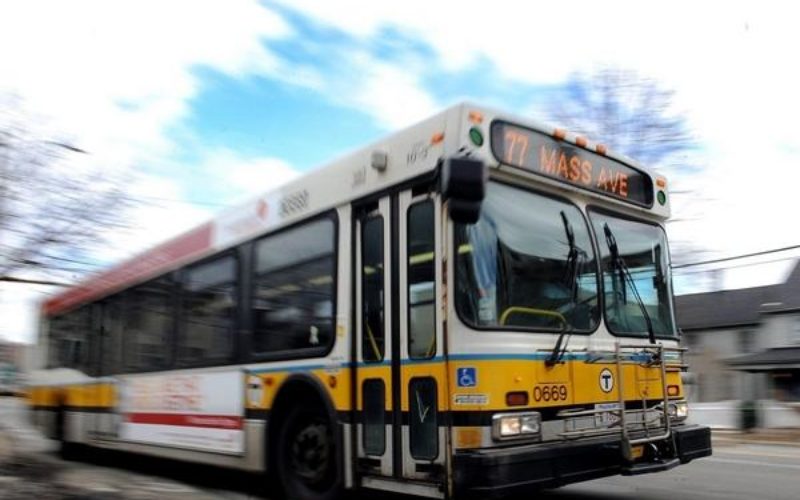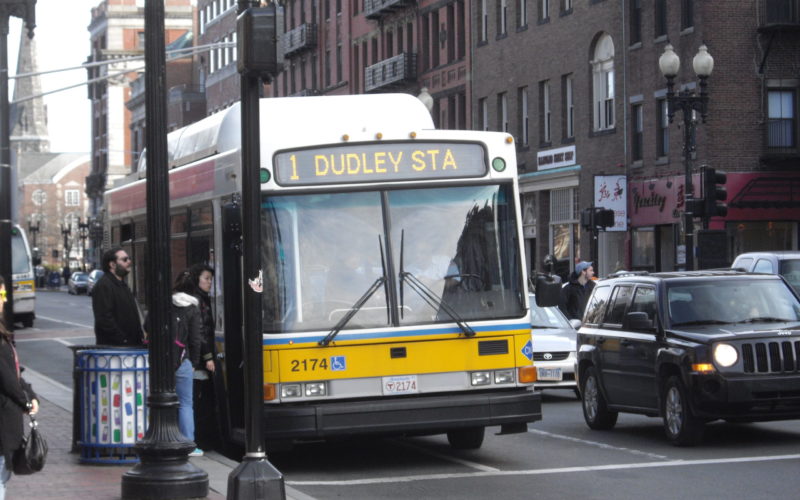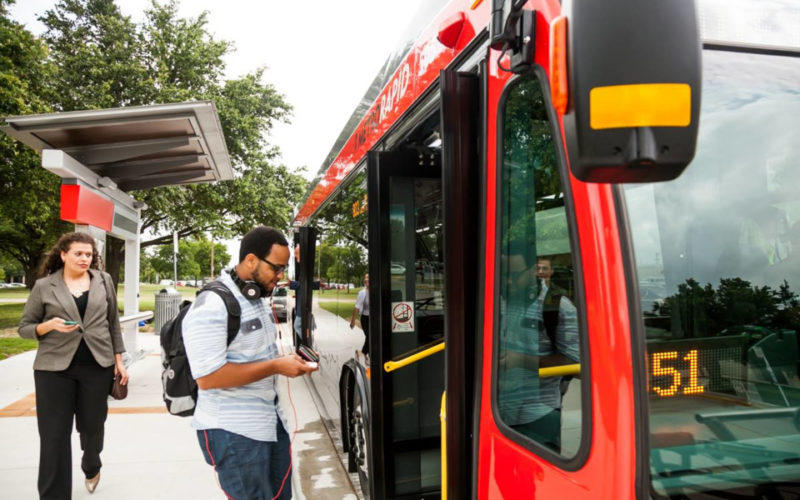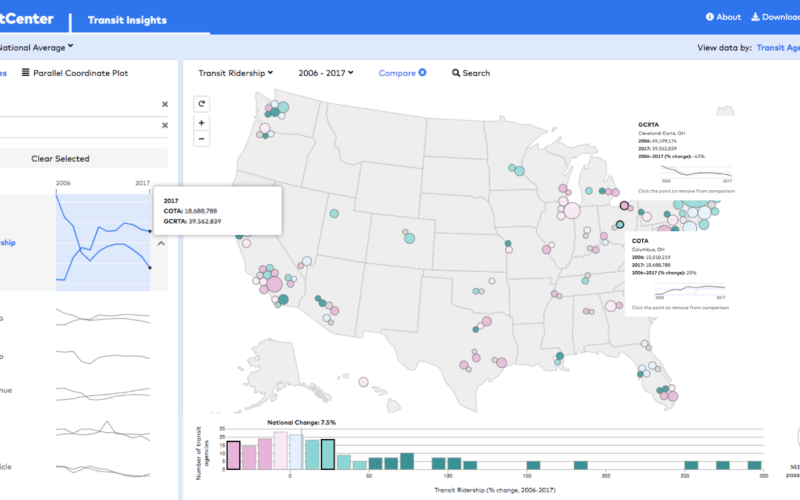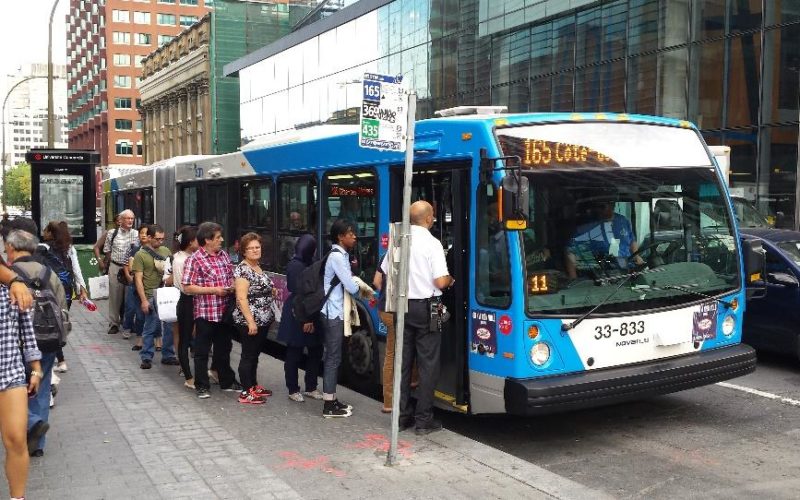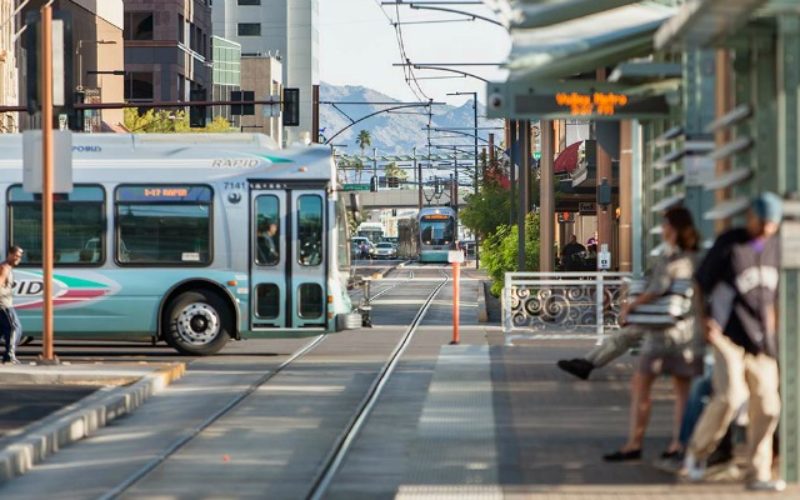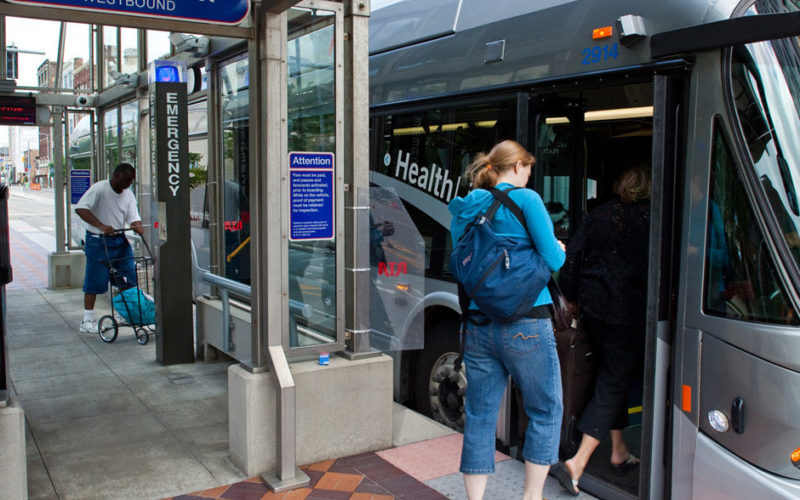Before COVID-19 struck, Boston’s MBTA changed its bus schedules four times a year. But since the pandemic began, the MBTA has accelerated this process, changing schedules four times since March in response to constantly shifting travel…
Read MoreThis guest post comes to us from Ian Thistle and Alissa Zimmer, researchers at the Massachusetts Bay Transit Authority in the Office of Performance Management and Innovation. It’s based on their recent report, “Location, Location, Location:…
Read MoreThe 2018 figures for American transit agencies are in, and the ridership emergency is far from over. Last year, in the vast majority of cities, fewer people rode buses and trains than the year before. The drop remained…
Read MoreThe transit fortunes of Columbus have been remarkably different than that of its neighbor, Cleveland. The current story of American transit is one of ridership decline. But this national trend masks significant local variation — some…
Read MoreThe 2018 figures for American transit agencies are in, and the ridership emergency is far from over. Last year, in the vast majority of cities, fewer people rode buses and trains than the year before. The drop remained…
Read MoreOur latest Ridership Initiative guest post comes to us from Transportation at McGill Research (TRAM) group members Geneviève Boisjoly, Emily Grisé and Ahmed El-Geneidy—researchers who have taken a deeper dive into the National Transit Database than…
You asked and we listened – we’ve made the raw data from our recent transit ridership analysis publicly available! A spreadsheet of national transit ridership data from 2002-2017 can now be found here. As always, feel free…
Are you a transit advocate in need of data to support your case for a bus network redesign in your city? A journalist looking to compare regional transit spending and service provision? Transit data enthusiast…
When it comes to increasing transit ridership, fare policy is an underutilized strategic tool. But a few transit agencies are demonstrating how it can be used to attract (or in some cases, repel) transit riders. Capital…
Read More